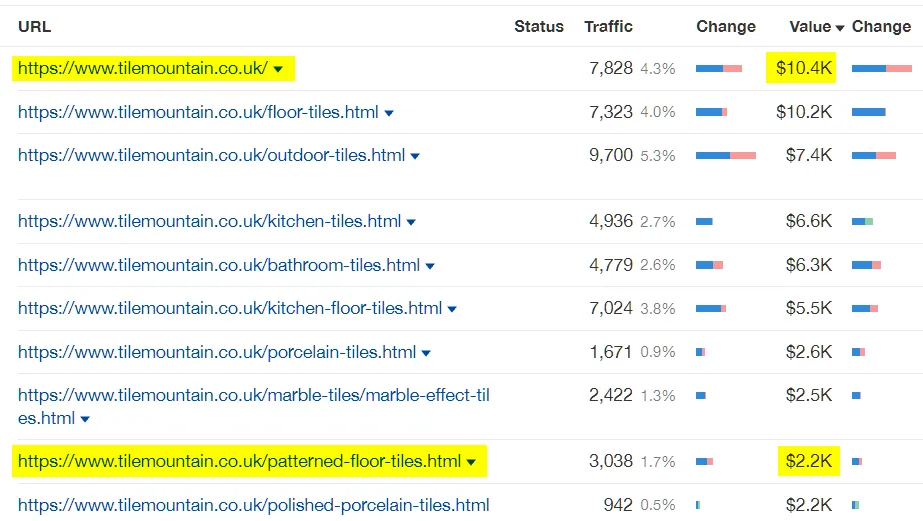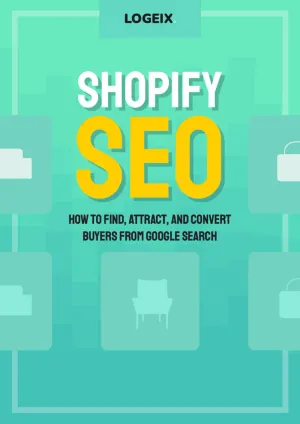Do you need SEO? Possibly not.

The SEO industry is insanely biased. Like a man with a hammer that can only see nails.
Just look at what content ranks when you search “do I need SEO”:
- “SEO is crucial because it makes your website more visible”
- 15 Reasons Why Your Business Absolutely Needs SEO
- Why Do You Need SEO Services?
- “Yes, SEO is important for any kind of business”
That last point especially is utter nonsense.
Look, I love SEO too. But I’ve also leveraged social media, email marketing, PPC advertising, affiliate marketing, and more. SEO is a piece in that marketing puzzle.
And for some, it’s not even a good piece. We turn down probably 80% of our inbound lead flow. Not everyone is a good fit for SEO.
Let me teach you how to determine if SEO is something you should be doing. Or not.
Do your products or services have buyer intent keywords?
The best traffic in the world is someone looking to buy your products. But do people search for what you offer?
If you sell espresso machines, sure. People search for a myriad of keywords around that.
But what about straws made from pasta? Well, actually it has 500 searches per month. But that’s not enough to justify hiring an SEO agency. And means very little when the top results are all about your brand anyway.
Or what if you sell hoodies? Maybe you love elephants and sell elephant hoodies. You’re limited to a miserable 200 monthly searches, compared to a significantly larger market on social media.
Final example, let’s say you sell a non-stick pan that doesn’t get scratched by metal utensils. Does anyone search “non-stick non-scratch pan""?, eh maybe. Not enough to generate an ROI. You could always target “non-stick pan”, but that’s not specific enough to convert great, especially since this is presumably a higher-end product.
See what I’m getting at here?
No tools necessary, just have a think about it. Are your products something that someone will search for?
Are their similar sized brands ranking well?
You’ll also want to consider the competition levels.
In my previous examples:
Hoodies has plenty of search volume, it’s just unfeasible to rank for this unless you’re a big box retailer.
And even non-stick pan, not only is it not particularly relevant, it’s also going to be pretty competitive to rank for.
There’s certain markets that typically don’t perform well with SEO, unless you take a more content driven approach (at the cost of conversions). Clothing and jewellery are the two I’ve seen most commonly.
Clothing is mostly dominated by huge brands. Unless you’re very niche specific like Vietnamese Ao Dai, pregnancy clothing, plus size clothing, etc.
Jewellery usually has the same problem. Though there’s less competitive markets we’ve worked in like grillz and chains.
The lesson:
Do a Google search for your main keywords, if it’s all dominated by big brands with the keywords in the title, it’s likely too competitive. Try to find a similar sized brand, that’s an indicator you can at least match them.
Are you looking for long-term growth?
Everything else I’ve said is irrelevant if you’re not in a situation to think long-term.
If you need an ROI within the next 6 months, SEO is absolutely not a fit for you.
Sometimes you need an arbitrage. You put money in, you get money out. PPC can do this, you run some ads and ideally make back more than you spent. Or you sponsor a show, then get sales from it. There’s a time and a place for this type of marketing.
But SEO isn’t an arbitrage. It’s a long-term investment into building a competitive moat within search. When done right, the ROI is there (our average client has a 10.55x return). This takes time to build up though.
The end result will be significantly more traffic at a 6.67x lower cost than PPC (source: our internal data). Or it’ll be nothing because you quit 4 months in after not seeing a return.
Don’t start SEO without being prepared to invest at least 12 months into it.
Is there a 3x ROI potential there?
I’ve written about calculating the ROI of Shopify SEO before. This can also be used for projecting the potential revenue.
Keyword research tools like Semrush and Ahrefs will usually have a traffic value estimation built in:

The ""Value"" column shows the estimated value of a page’s monthly organic search traffic.
This is the equivalent cost if this traffic was obtained through PPC. Which is a useful indicator into the value of a keyword. We use it for a quick TAM (total addressable market) analysis.
If your TAM is $30,000 per year and your SEO agency is quoting you $35,000 per year, it’s a terrible investment. You should aim for a 3x traffic value minimum, probably more like 10x.
You can get even more specific with this by using your conversion rate and average order value. If you’ve got a 2% conversion rate, $150 AOV, and your top competitor has an additional 12,000 monthly visitors. Then calculate it as below:
(12,000 x 0.02) x $150 = $36,000 per month
You can also try our Shopify SEO ROI calculator tool to make this easier.
Final Thoughts: So, do you need SEO?
Possibly.
If you matched these 4 criteria points, I’d say it’d most likely be a great investment for you.
But if you failed even one of these, you should probably do some extra research before making a decision.
It’s certainly possible to have great SEO without buyer intent keywords. We’ve got an eyebrow sticker client, for example, that drives a considerable amount of their traffic from searches around eyebrow hair loss, thinning, and similar. This funnels perfectly into their product line.
Generally speaking though, I want keywords to be as high buyer intent as possible for SEO to be profitable. You’re unlikely to sell many hoodies with style guides, that content would better be suited for social media.
There’s no black and white rules then. But this simple 4 point criteria should give you a much clearer perspective.

